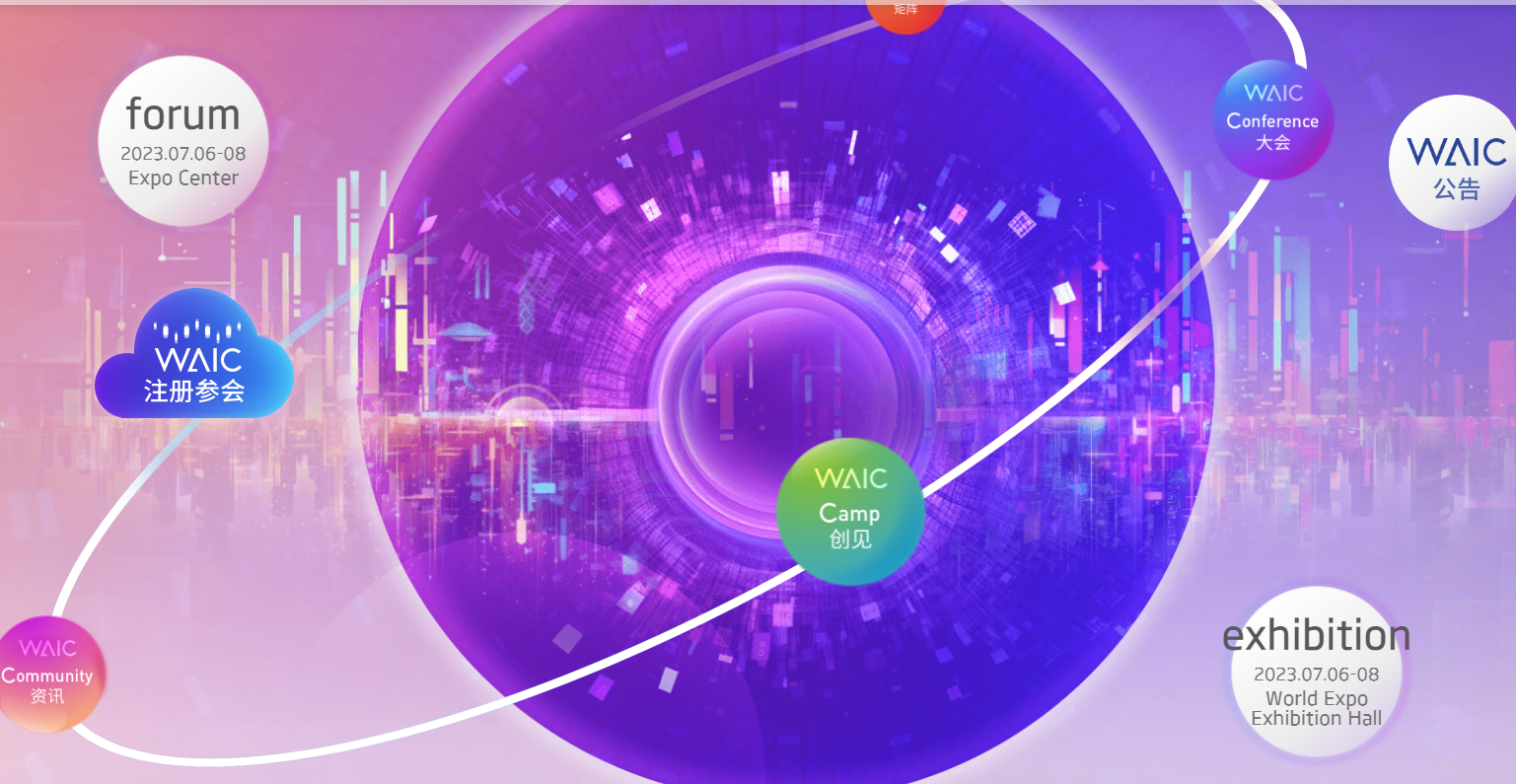China’s WAIC 2023 is expected to gather industry leaders, policymakers and some of the world’s biggest tech companies. However, U.S. sponsorship numbers dwindled since pre-pandemic levels.
https://www.worldaic.com.cn/
KEY POINTS
Only Qualcomm listed as ‘elite partner’ for WAIC 2023Microsoft, Amazon Web Services and IBM were WAIC partners in 2019Shows China’s wariness in allowing U.S. companies to be on the same level as domestic companies:OpenAI, the maker of ChatGPT, won’t attend the conference
China is holding its biggest artificial intelligence conference Thursday in Shanghai, but this year there is only one American company sponsoring the industry’s signature event as tensions over U.S. and its allies limiting Beijing’s access to advanced technology threaten to boil over in the background.
The World Artificial Intelligence Conference (WAIC) in Shanghai, which will run July 6-8 with the theme ‘Intelligence Connectivity Generating Future,’ will feature more than 400 exhibitors. Aside from AI companies, the industry’s big global show is also expected to draw in government officials, industry experts, scholars, scientists, investors and AI startups.
But only San Diego-based chipmaker Qualcomm features as an ‘elite partner’ for the conference from the U.S. tech industry — a depature from the past. There are no U.S. companies listed in the higher sponsor tiers, strategic and excellent partners, either. The rest of the event’s sponsors are all Chinese firms, including U.S.-sanctioned Chinese tech giant Huawei and AI software provider SenseTime.
Other Chinese tech giants sponsoring the event are Alipay parent company Ant Group, internet company Baidu, e-commerce giant Alibaba, video game behemoth Tencent, and state-owned telecommunications company China Telecom.
“Given how several of these same firms were ‘strategic partners’ at past WAICs, and how the content, participation list, speakers and such were likely determined by the hosts (who are Chinese government ministries), the decline in U.S. company sponsorships for the WAIC indicates, at the very least, a wariness by these Chinese government ministries in allowing U.S. companies to be on the same level as their own domestic companies,” Jessica Martin, a research associate at the Washington. D.C.-based Institute for China-America Studies told International Business Times.
“The decline could also be potentially rooted in U.S. companies rejecting opportunities to be sponsors, perhaps out of concerns for security or public image, but that appears to be less likely given how several of these companies’ CEOs have already made public efforts to travel to China and meet with Chinese leaders over the last few weeks,” Martin said in emailed comments.
Before the pandemic year, the WAIC 2019 saw Microsoft, Amazon Web Services and IBM as “strategic partners” of the event. Tesla CEO Elon Musk also attended as one of the summit’s high-profile speakers and discussed AI with Alibaba Group founder Jack Ma.
Some of America’s big tech companies including Apple, Tesla, Microsoft and Amazon will send their representatives to attend the WAIC this year.
Shirley Marcus, dean of Amazon Cloud Technology Generative AI Product Research Institute, will attend the summit as a speaker, and so will Lisa Su, chairman and CEO of Santa Clara-based Advanced Micro Devices (AMD).
The U.S.-China tech war has been escalating in recent months after Washington cut off China from some tools that could be used to make certain advanced semiconductor chips. Beijing hit back, restricting memory chip giant Micron from key infrastructure projects, saying its products posed national security risks. Just this week, the Chinese Ministry of Commerce announced new export curbs on gallium and germanium exports – key metals for making chips.
UK’s Global AI Regulation Push Not In Developing World’s Interest: ExpertRead more
UK’s Global AI Regulation Push Not In Developing World’s Interest: Expert
U.S. companies disengaging from partnering China’s biggest AI summit is a “risk management strategy” to Beijing’s oversight of the tech industry in general, Mary B. Teagarden, deputy dean of knowledge enterprise at the Arizona State University’s Thunderbird School of Global Management, told IBT.
Notably, ChatGPT maker OpenAI is skipping this year’s WAIC. The American AI leader’s absence follows China’s recent publication of a draft law that requires companies to undergo a “security assessment” before any of their generative AI products are deployed to the public.
The draft law, released by the Cyberspace Administration of China and dubbed as the “Administrative Measures for Generative Artificial Intelligence Services,” states that “content generated by generative artificial intelligence should reflect the core value of socialism, and must not contain subversion of state power,” as per a Google translation.
In May, Chinese media reported that authorities arrested a man accused of using AI to generate fake news. The accused allegedly used ChatGPT to generate a fake article about a train crash in northwestern Gansu.
Martin said when governments publicly and repeatedly disparage a company, the public’s trust in those companies falls, potentially to an extent that cautions parties to even have an association with that company. “Real trust takes time to build but is easily lost; both in politics and in industry. International conferences can be used to both gain and lose that trust, and government policies can block that path, both directly and indirectly,” she added.
Teagarden said a strong show of support by American tech companies for events such as the WAIC would reduce the negative impact of the U.S.-China tech war. But China’s current tech policies aimed at the U.S. are leading to contraction in engagement from some of the West’s technology leaders, Teagarden, who specializes in technology and innovation management, explained.
“The current weak attendance will put a drag on innovation for both sides,” she pointed out.
“Worse, this reduced engagement of U.S. companies is at the detriment of China’s ongoing development and [impedes] opportunities for employment [for] their large number of unemployed high-tech university graduates,” she said.
This news article has been updated throughout with comments from Jessica Martin of the Institute for China-America Studies.
2023-07-23 18:00:04
Source from www.ibtimes.com
rnrn
